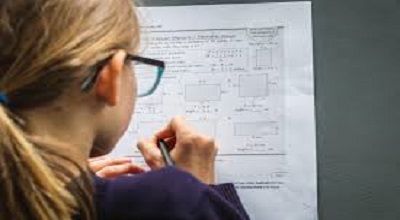Project-Based Learning Looks Like In Math
Project-Based Learning Looks Like In Math: Project-based learning (PBL) in math involves students engaging in real-world, hands-on projects that require them to apply mathematical concepts and skills to solve authentic problems. PBL in math goes beyond traditional rote learning and focuses on developing students’ critical thinking, problem-solving, and collaboration skills. Here’s what project-based learning in math looks like:
Real-world Context:
- Projects are designed around real-world problems or scenarios, making the math content relevant and meaningful to students.
- Examples could include designing a budget for an event, analyzing data sets from real-world sources, or creating a scale model of a building.
Inquiry and Investigation:
- Students are encouraged to ask questions, conduct research, and investigate the problem at hand.
- This promotes a sense of curiosity and allows students to take ownership of their learning.
Application of Mathematical Concepts:
- Students apply mathematical concepts and skills they have learned in class to solve the problems presented in the project.
- This could involve using geometry to design a blueprint, applying algebra to analyze data trends, or using statistics to make predictions.
Collaboration:
- PBL often involves collaborative work, where students work in teams to brainstorm ideas, divide tasks, and collectively solve problems.
- Collaboration helps develop teamwork and communication skills.
Critical Thinking and Problem-Solving:
- Students are challenged to think critically about the problem, devise strategies for solving it, and adapt their approach as needed.
- PBL fosters a deeper understanding of mathematical concepts as students grapple with real-world challenges.
Creativity:
- Students are encouraged to think creatively when applying mathematical principles to solve problems.
- Creativity might involve thinking of innovative solutions, designing visual representations, or finding alternative methods for problem-solving.
Reflection:
- PBL often includes opportunities for reflection, where students can assess their own work, discuss what they’ve learned, and identify areas for improvement.
- Reflective practices help reinforce the learning process.
Presentation of Findings:
- Students are often required to present their findings and solutions to the class or a wider audience.
- Presentations could take various forms, such as oral presentations, written reports, or multimedia presentations.
Assessment:
- Assessment in PBL is focused not only on the final product but also on the process of learning.
- Teachers may assess students’ collaboration skills, problem-solving strategies, and the depth of their understanding of mathematical concepts.
Final Words
By incorporating project-based learning in math, educators aim to make math more engaging, practical, and applicable to students’ lives, while also fostering a broader set of skills that are valuable in various aspects of their academic and professional journey.
